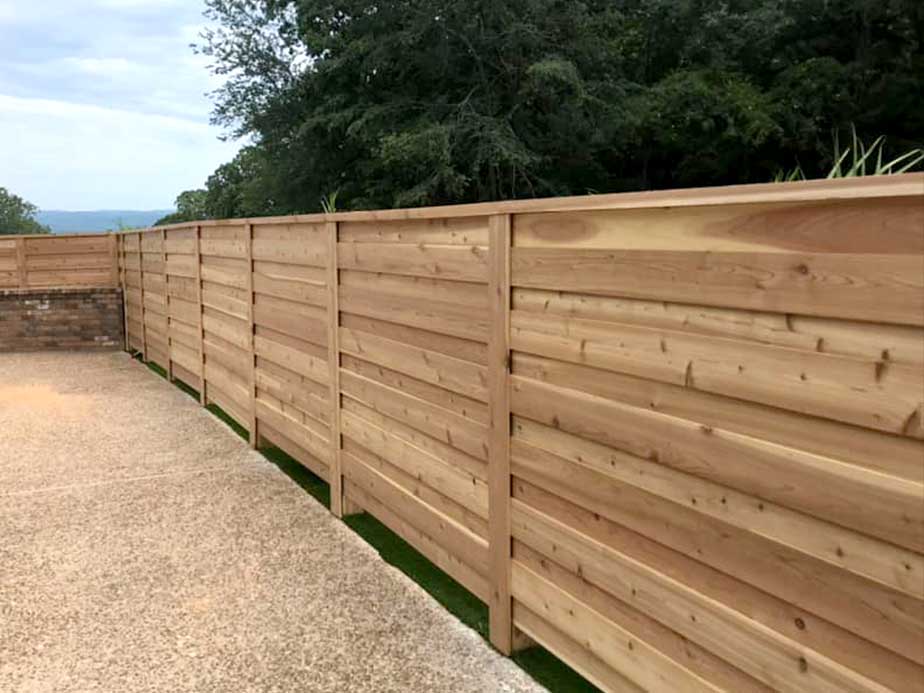All Categories
Featured
Choosing the best fencing for a residential or commercial property located in an area vulnerable to severe weather conditions is essential for maintaining durability, security, and functionality. Whether your area experiences high winds, hefty snowfall, extreme heat, or downpours, specific fencing products and layouts are much better equipped to endure the aspects. Here's a guide to the finest secure fencing alternatives for residential or commercial properties in tough environments.
Secure Fencing Options for Windy Areas.
Fencing Options for Wet or Humid Climates.
![]()
Fence Options for Cold and Snowy Climates.
Fencing Options for Hot and Arid Climates.
![]()
Design and Setup Tips for Extreme Weather. Secure Structures: Correctly anchoring fence messages in concrete can enhance stability during storms or heavy snowfall. Choose for Open Layouts: In gusty areas, select fencings with spaces or slats to permit air to pass through, lowering pressure on the structure. Use Weather-Resistant Coatings: Protective finishes can protect fences from rust, fading, or moisture damage, extending their lifespan. Seek Advice From Professionals: Deal with knowledgeable fencing service providers that recognize regional climate challenges and can advise the most effective layouts and materials. Verdict. Extreme weather require fencing options that focus on durability and strength. Whether you're fighting high winds, hefty snowfall, intense warm, or too much dampness, materials like plastic, composite, aluminum, and dealt with wood give dependable protection. By choosing the best fence and making certain correct setup, you can secure your home while boosting its visual allure.
Secure Fencing Options for Windy Areas.
- Plastic Fences. Vinyl fence is extremely resilient and flexible, making it a superb selection for locations vulnerable to strong winds. Its capability to flex a little without breaking helps it endure high-pressure gusts. Choose styles with larger voids, such as picket or shadowbox designs, to minimize wind resistance.
- Steel Fences (Aluminum or Steel) Metal fences are strong and can handle hefty winds, particularly when spaced adequately. Aluminum is rust-resistant and light-weight, while steel uses additional resilience for extreme conditions.
- Chain-Link Fences. Chain-link secure fencing allows wind to travel through, minimizing resistance and pressure. This cost-effective choice is perfect for windy areas and requires minimal maintenance.
Fencing Options for Wet or Humid Climates.
- Vinyl Fences. Plastic is unsusceptible moisture, making it a suitable selection for areas with hefty rains or high moisture. It will not warp, rot, or draw in mold, making sure longevity with very little maintenance.
- Composite Fences. Composite materials integrate timber fibers and plastic, providing excellent resistance to moisture and rot. They simulate the appearance of timber while giving superior toughness in wet conditions.

- Pressure-Treated Timber. For those who like a natural look, pressure-treated wood is made to resist water damage, degeneration, and insect infestations. However, it needs regular securing to maintain its honesty.
Fence Options for Cold and Snowy Climates.
- Wrought Iron Fences. Wrought iron fences are tough and can withstand hefty snow tons without flexing or damaging. Nevertheless, they need a protective covering to stop corrosion in regions with snow and ice.
- Plastic Fencings. Vinyl continues to be versatile and immune to cracking in freezing temperatures. Its non-porous surface area additionally prevents ice accumulation, making it a superb choice for chilly climates.
- Concrete or Stone Fencings. These materials are highly long lasting and can withstand the weight of snow and ice. They require professional installation however offer unmatched long life in extreme cold.
Fencing Options for Hot and Arid Climates.
- Vinyl Fences. Vinyl is UV-resistant and doesn't discolor, warp, or fracture under intense warmth, making it among the best alternatives for desert-like conditions.
- Light weight aluminum Fences. Aluminum fencing stands up to severe warm without jeopardizing its structure or appearance. Its powder-coated coating provides added defense versus sunlight damages.
- Bamboo Fences. Bamboo is normally immune to warm and adds an one-of-a-kind, environmentally friendly visual. It's sustainable and light-weight, but it might call for routine treatment to stop breaking or drying.

Design and Setup Tips for Extreme Weather. Secure Structures: Correctly anchoring fence messages in concrete can enhance stability during storms or heavy snowfall. Choose for Open Layouts: In gusty areas, select fencings with spaces or slats to permit air to pass through, lowering pressure on the structure. Use Weather-Resistant Coatings: Protective finishes can protect fences from rust, fading, or moisture damage, extending their lifespan. Seek Advice From Professionals: Deal with knowledgeable fencing service providers that recognize regional climate challenges and can advise the most effective layouts and materials. Verdict. Extreme weather require fencing options that focus on durability and strength. Whether you're fighting high winds, hefty snowfall, intense warm, or too much dampness, materials like plastic, composite, aluminum, and dealt with wood give dependable protection. By choosing the best fence and making certain correct setup, you can secure your home while boosting its visual allure.
Latest Posts
Discover Exclusive Auto Repair Specials in Chicago at Montclare Auto Repair
Published en
1 min read
Take Advantage of Special Auto Repair Offers in Chicago at Montclare Auto Repair
Published en
1 min read
Find Outstanding Car Repair Services at Montclare Auto Repair – Drive with Confidence
Published en
1 min read
More
Latest Posts
Discover Exclusive Auto Repair Specials in Chicago at Montclare Auto Repair
Published May 29, 25
1 min read
Take Advantage of Special Auto Repair Offers in Chicago at Montclare Auto Repair
Published May 25, 25
1 min read
Find Outstanding Car Repair Services at Montclare Auto Repair – Drive with Confidence
Published May 24, 25
1 min read